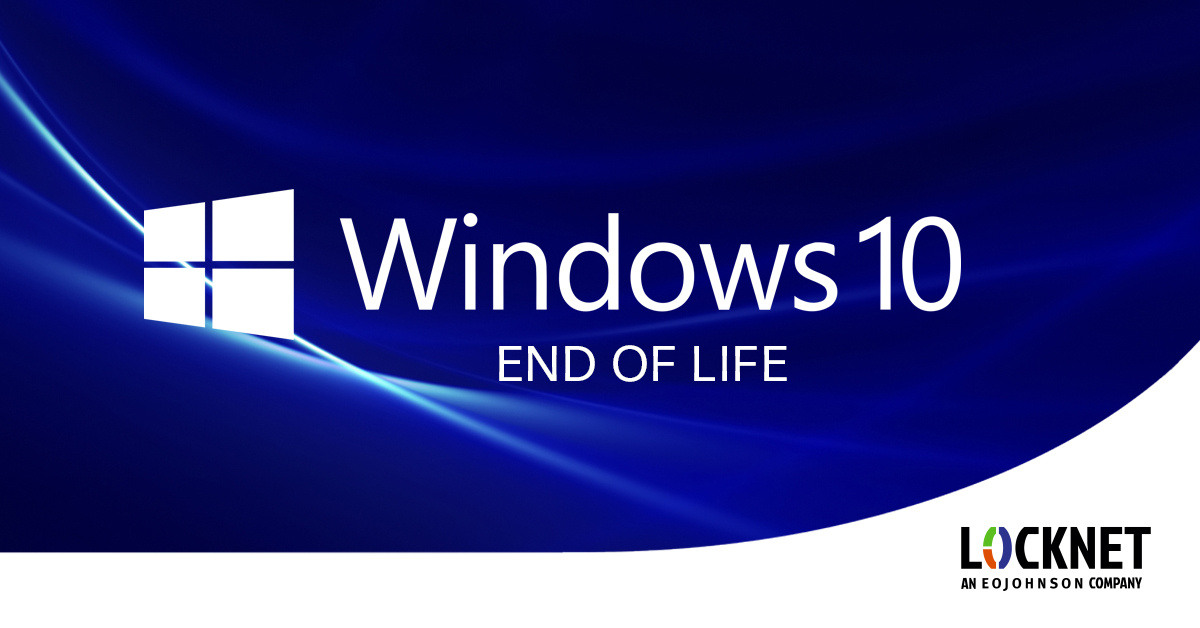World Class IT Support & Service
Real People. Right Now.
About Locknet® IT Services
From the first hello, the Locknet® team is dedicated to serving you and your needs.
Real People. Right Now.
From the first hello, the Locknet® team is dedicated to serving you and your needs.


As the end of life for Windows 10 approaches, many users and organizations are preparing for the next phase of their computer infrastructure. The deadline for upgrading to Windows 11 from 10 is critical, as it signifies the end of support, updates, and security patches for Windows 10. This transition period raises several questions regarding hardware requirements, the necessity of purchasing new devices, and the potential risks of not upgrading. In this blog, we will address these concerns to help you navigate the post-Windows 10 era.
The official end-of-life date for Windows 10 is set for October 14, 2025. After this date, Microsoft will no longer provide technical support, security updates, or bug fixes for Windows 10. Users are encouraged to upgrade to Windows 11 before this deadline to ensure their systems remain secure and functional. It is advisable to make the transition well before October 2025 to avoid any last-minute complications.
Whether you need to buy a new PC depends on the hardware of your current device. If your device meets the minimum requirements, you should be able to upgrade to Windows 11 without needing a new PC. However, if your system falls short of these specifications, you may need to consider upgrading your hardware or purchasing a new device.
For users with older machines that do not support features like TPM 2.0 or Secure Boot, investing in a new PC may be the most practical solution. Modern PCs designed with Windows 11 in mind will provide a smoother and more secure user experience, taking full advantage of the new operating system's capabilities.
Choosing not to upgrade to Windows 11 after Windows 10 reaches its end of life can pose several risks:
Without regular security updates, Windows 10 systems will become increasingly vulnerable to malware, viruses, and other cyber threats. Hackers often exploit outdated software to gain unauthorized access to systems, putting your data and privacy at risk.
After October 2025, Microsoft will no longer provide technical support for Windows 10. This means that if you encounter any issues or need assistance, you will not be able to rely on Microsoft's customer support services.
As software developers focus on optimizing their applications for Windows 11, you may experience compatibility issues with new software and updates. Over time, fewer applications will support Windows 10, limiting your ability to use the latest tools and features.
Some of the latest advancements in technology, such as enhanced security features, improved performance, and new functionalities, are exclusive to Windows 11. By not upgrading, you may miss out on these benefits, potentially impacting your productivity and overall user experience.
For businesses, running an unsupported operating system can lead to compliance issues, especially in industries with strict regulatory requirements. Ensuring your systems are up to date with the latest security patches is crucial for maintaining compliance and protecting sensitive data.
As the end of life for Windows 10 approaches, it is essential for our managed IT clients to prepare for the transition to Windows 11. Locknet’s Keysuite and Netxus Plus clients can contact their support team or their Technical Account Manager to get a report showing which of their devices has enough resources to run Windows 11. With this information, we can help you understand if the purchase of new PCs is required for your organization. Whether you need to upgrade your existing hardware or invest in new PCs, we can help you move to Windows 11 to ensure your systems remain secure, functional, and up to date with the latest advancements in technology. By planning and making the necessary changes, you can smoothly navigate the post-Windows 10 landscape and continue to enjoy a reliable and secure computer infrastructure.
Your Technical Account Manager can help put together a plan for upgrading your organization to Windows 11. Contact us today to get started.
Microsoft

Onalaska, WI Waterloo, IA Wausau, WI Eau Claire, WI Burnsville, MN
You are now leaving locknetmanagedit.com. Please check the privacy policy of the site you are visiting.